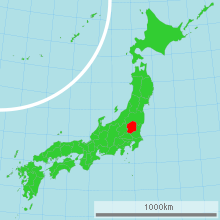| Aseroe coccinea | |
|---|---|
| Scientific classification | |
| Domain: | Eukaryota |
| Kingdom: | Fungi |
| Division: | Basidiomycota |
| Class: | Agaricomycetes |
| Order: | Phallales |
| Family: | Phallaceae |
| Genus: | Aseroe |
| Species: | A. coccinea
|
| Binomial name | |
| Aseroe coccinea Imazeki et Yoshimi ex Kasuya
| |

| |
| Found only in Tochigi Prefecture, Japan | |
| Aseroe coccinea | |
|---|---|
| Smooth hymenium | |
| No distinct cap | |
| Hymenium attachment is irregular or not applicable | |
| Stipe is bare | |
| Spore print is olive-brown | |
| Ecology is saprotrophic | |
| Edibility is unknown | |
Aseroe coccinea is a species of stinkhorn fungus in the genus Aseroe. First reported in Japan in 1989, it was not formally validated as a species until 2007, the delay related to a publication error. The receptacle, or fruit body, begins as a partially buried whitish egg-shaped structure, which bursts open as a hollow white stipe with reddish arms, then erupts and grows to a height of up to 15 mm (0.6 in). It matures into a star-shaped structure with seven to nine thin reddish tubular "arms" up to 10 mm (0.4 in) long radiating from the central area. The top of the receptacle is covered with dark olive-brown spore-slime, or gleba. A. coccinea can be distinguished from the more common species A. rubra by differences in the color of the receptacle, and in the structure of the arms. The edibility of the fungus has not been reported.